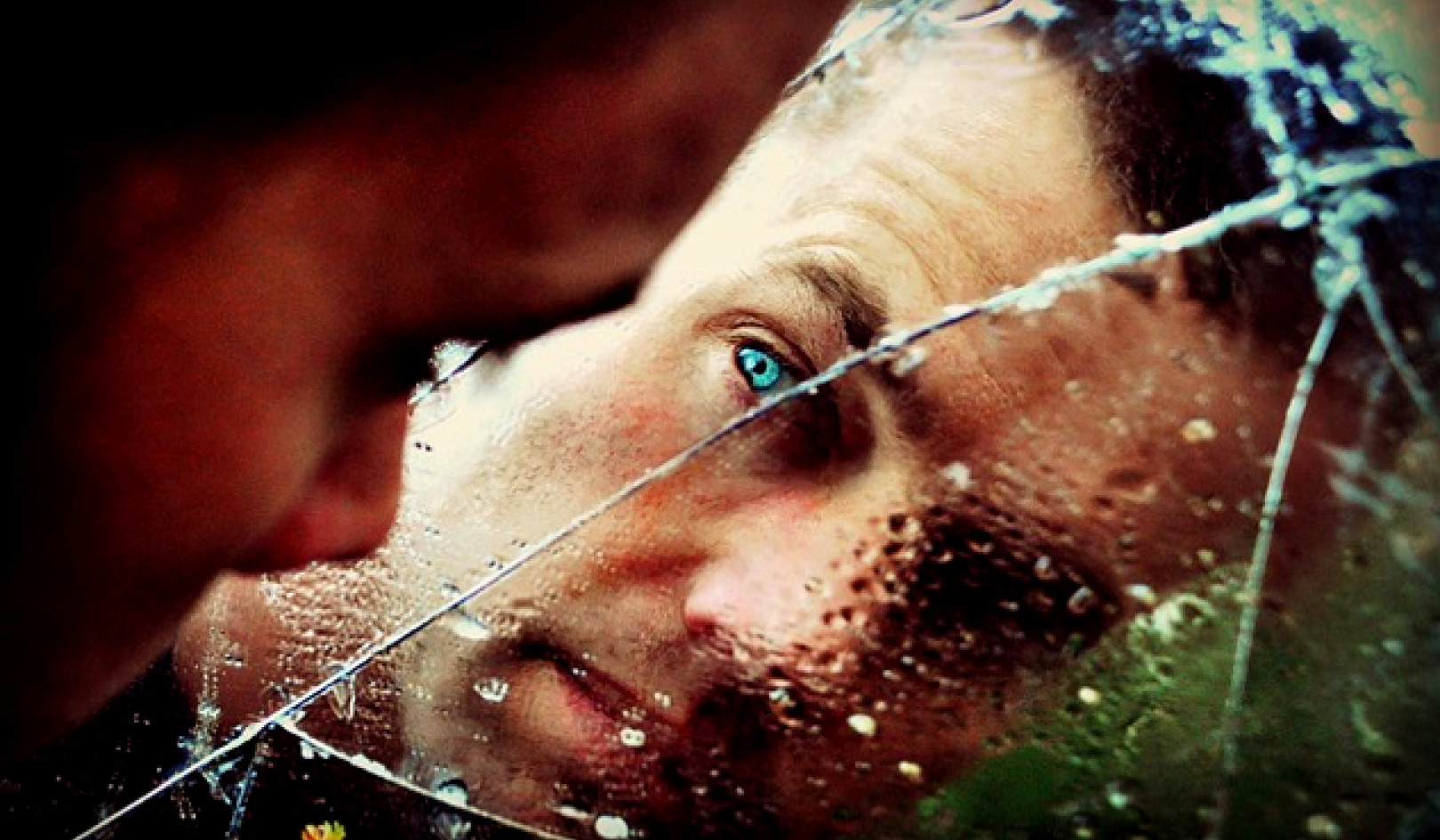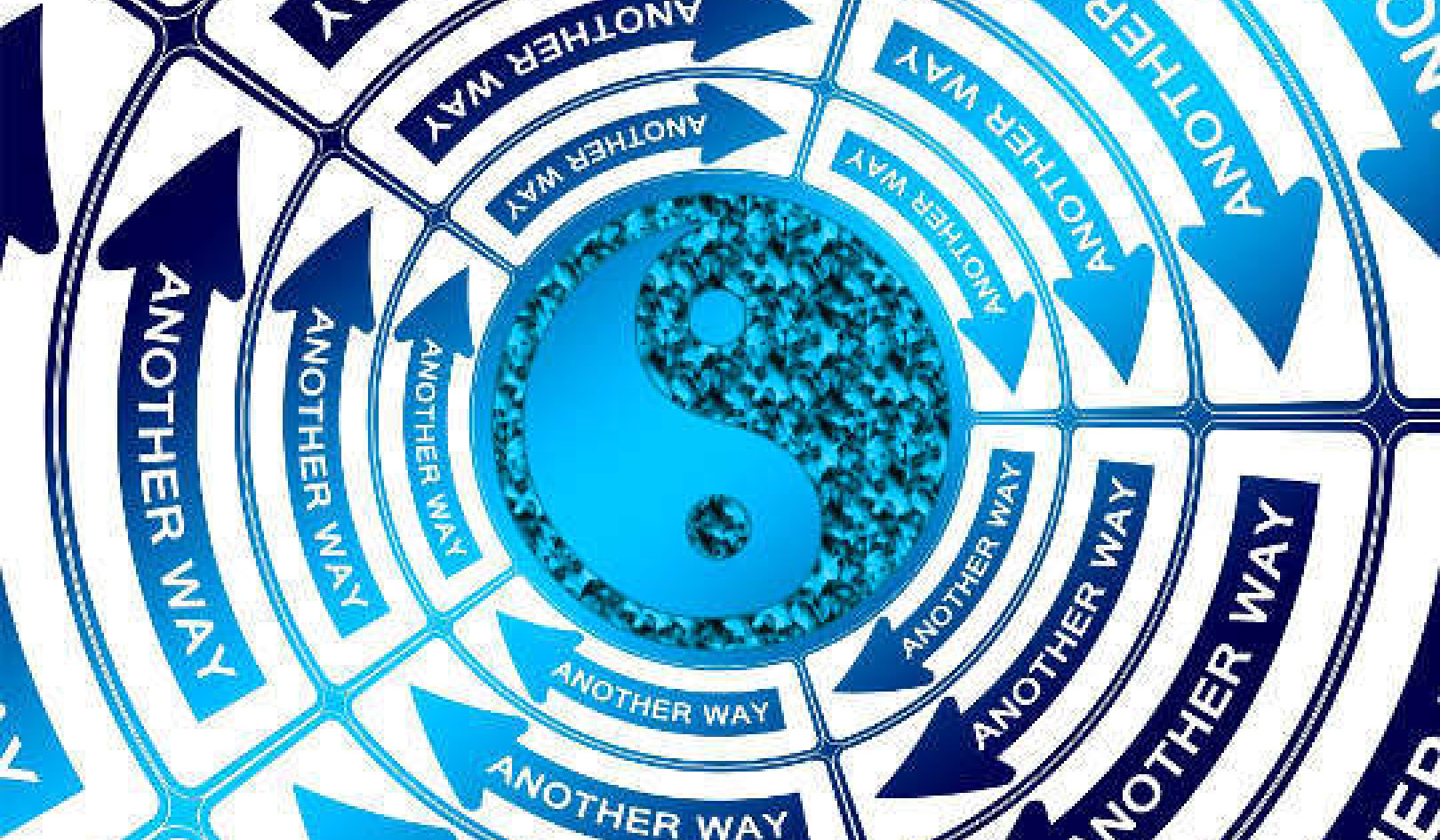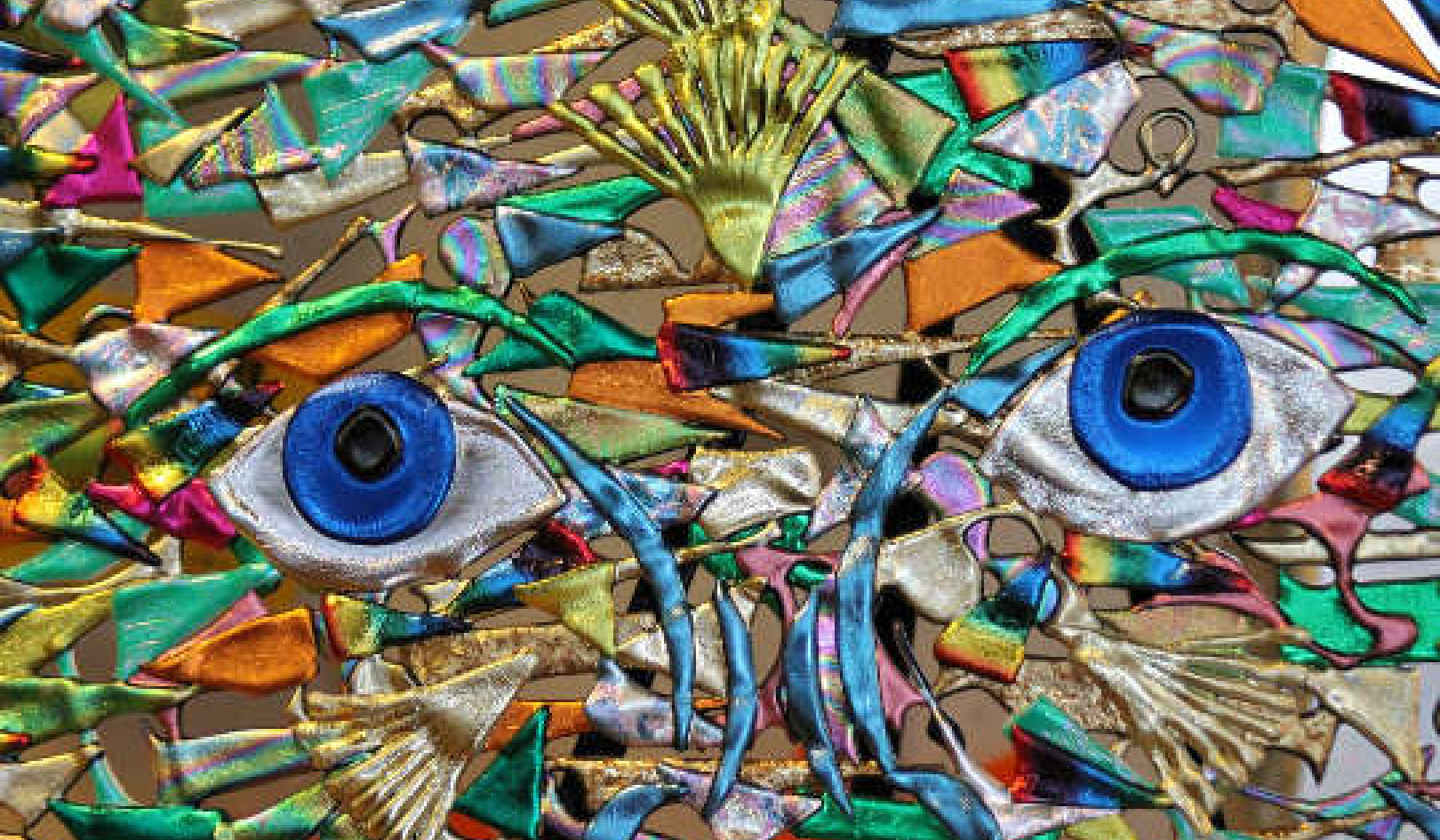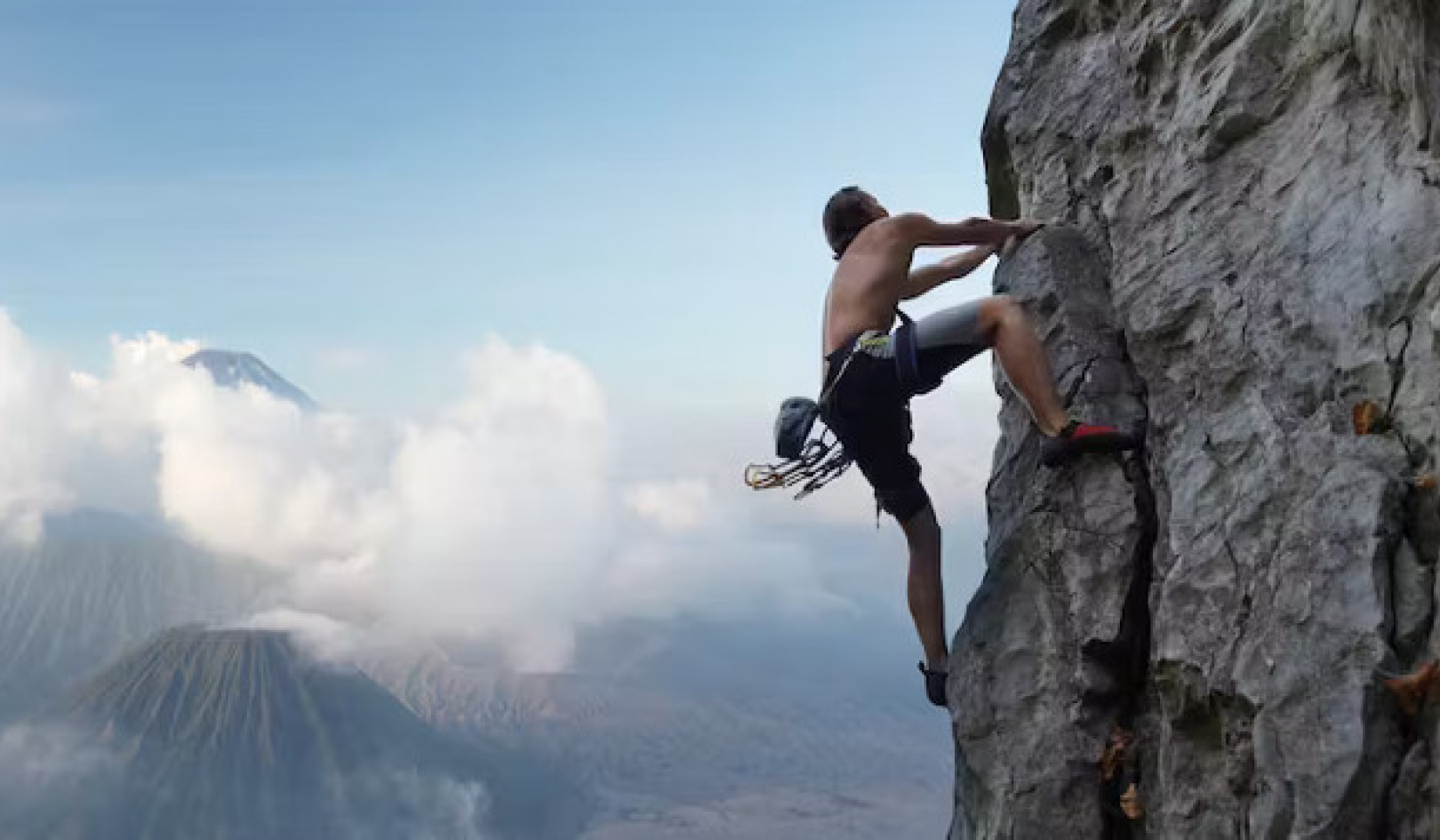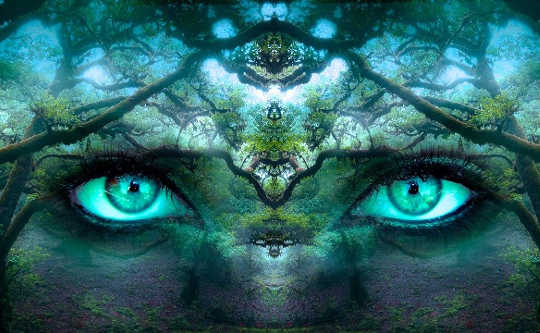
Image by Stefan Keller
Mana: Divine, supernatural, or miraculous power, authority, or privilege.
Throughout Polynesia, folktales and myths abound that tell of the miraculous exploits of the powerful and audacious god Maui. He is considered a master shaman, capable of shape-shifting into other forms (birds being his preferred disguise), and accomplishing a host of other marvelous, extraordinary feats.
As a demi-god, both divine and mortal, Maui has distinctly human traits as well, for he can be clumsy, mistake-ridden, lustful, ambitious, and childlike. Because he has often found pleasure in behaving outside societal expectations, Maui’s feats have earned him a reputation in the South Pacific as less of a divine being to be revered, and more as a popular cultural hero.
There are many versions of the Maui legends, originating from Hawaii, New Zealand, Fiji, Samoa, and Tahiti. Despite differences in some details, all agree that Maui’s adventures and accomplishments have had lasting impacts on all humans and Nature.
Maui's Adventures and Accomplishments
It is said that during an ancient era, the sky was oppressively close to the ground. The clouds blocked much of the light, which not only caused great darkness, but also made everyone have to bend over and crawl around, constantly bumping into one other. Even the tops of the trees were flattened by the sky’s great weight.
When Maui went to visit a local Kahuna to seek a solution, the old, wise man tattooed a magical symbol on Maui’s forearm and told him that it would give him great power. Maui then came upon a beautiful Polynesian maiden who knew that he was a master shaman, and asked him to use his power to lift up the sky.
Maui flirtatiously told her that if she allowed him to “drink from her gourd” (innuendo implied), it would give him the strength that he needed to lift up the sky. The maiden gave Maui an elixir whose effect, not to mention the effects of whatever other intimacies transpired between the two, was so strengthening and enlivening that he used his enhanced vigor to push the sky upward, far past the highest mountains, and lifted its edges over the vast ocean, placing the sky where it remains today.
But while the people were enjoying the new light and space under the sky, there came another problem. Maui’s mother, Hina, was frustrated by how little work she could accomplish in the shortness of the day, for the sun’s passage across the sky happened far too quickly.
As any obedient son would, Maui sought to remedy the situation. Using a net that he made from the enchanted hairs of his sister (also named Hina), he captured the sun, tied it to a tree, and threatened to give it a good thrashing with his magical stone ax. Then he facilitated a skillful negotiation with the sun, asking it to slow down its daily journey. The sun finally agreed, and Maui smugly went back to his awestruck mother, pointed upward and said, “You’re welcome!” We’re still benefiting from the long days of sunlight from that fateful agreement.
Mana: The Innate Power Within
Maui clearly knew how to make things happen. He was a master of Mana, the innate power that each of us possesses, that special quality that enables us to generate life however we choose, and to empower others to do the same. The Maui stories teach us about ourselves, for just as Maui was capable of fantastic deeds, we are no different.
The sixth Huna principle, Mana, states that there is nothing outside us that is more powerful than we are, and there is nothing that can’t be touched by our influence. Every dynamic action that we take contains an inner spark of universal power that spans the galaxies and beyond.
Not only do we have this power, but so does everyone and everything else, equally and without exception. We exist in an infinitely powerful universe, and that powerful infinitude converges at the point that we each call “myself”: All power comes from within.
The power to create our life comes from each of us individually, and the more health, entitlement, positivity, and expansiveness that we possess, the more Mana is available to us to accomplish whatever it is that we desire.
Mana In Action: Authoring Our Lives As We See Fit
Another meaning of Mana is “authority,” which implies the right to exercise power or author our lives as we see fit. This is our Mana in action.
At the heart of the cultivating that which brings us Mana is the building of our self-esteem, for nothing takes us farther away from the truth about ourselves—and the power we each possess—than the all-too-common belief that we ourselves are something other than God.
We are all sparks of God, and if there is an ultimate purpose to our human lives, it is in our individual realization of this truth. If everyone could only see themselves clearly, the Trappist monk Thomas Merton wrote, “We would fall down and worship each other.” This isn’t necessarily hyperbolic, for the power that Huna’s sixth principle refers to is divine power, and every time we think ourselves as being capable of anything less, we diminish the precious opportunity to see the miracle of our potential.
Self-esteem isn’t just about feeling good about ourselves, and it certainly isn’t egotistical; it’s about holding ourselves as the precious beings that we are, with the full awareness that if the universe didn’t need us, we wouldn’t be here. That being so, we are to cherish ourselves by developing the gifts that each of us possess so that we can share them with the world.
The nineteenth-century Hawaiian Queen Kapiolani had a favorite motto, E k?lia i ka nu‘u, which means, “Strive to reach the highest summit.” The more we value ourselves through our own self-investment, the more Mana we claim for ourselves.
All Power Comes From Within
When a shaman is doing shamanic healing, he or she is essentially performing two simple actions: removing that which obscures power or restoring power that has been lost. That’s all there is to it: taking out or putting back in. But the shaman can only do this successfully if the client utilizes the power inside themselves to accept the power back, or to release that which blocks it.
In other words, any effect— positive or negative—that another person has on you can only come about if the power within you grants and allows it. All power comes from within, and each of us has all of it.
Maui couldn’t really make the sun do anything it didn’t want to do. The power within the sun chose to agree to his request, and by doing so, the sun granted itself the opportunity to experience much more of itself by creating longer days in which to shine. Nor did Maui have the strength to lift the sky by himself; it was the sky’s inner authority that allowed itself to be lifted, and the sky grew to its vast expanse in the process.
The True Definition of Power
Exemplified in the stories of Maui is the true definition of power, which is to influence others toward their empowerment. Real power is present in our ability to empower. In Hawaiian, the word manamana means “to empower” or “to impart Mana.”
True power is never power over something, because that implies retaliation and fear, which cause power to dwindle, and power against something only causes resistance. But when we use our Mana to empower others, we further creation and growth. All power comes from within, because nothing lies outside of God, including you.
Now, if we are all-powerful, Godlike beings, then it seems a rather steep and dramatic fall from grace when we contemplate how often we don’t come close to thinking of ourselves in this way. True empowerment seems almost impossible in this age of social media, where personal validation comes in the forms of “likes,” “followers,” and “swipes to the left”; where advertising and consumerism are in a constant, frenzied race to sell you whatever will alleviate what you fundamentally and surely lack; and where society, family, and government remind you continually of your insignificance. And the “powers that be” (notice what I just called them) want it that way, because if you stay small by worshiping at their altar, then you remain beholden to their whims.
Attention Flows Where Energy Goes
Just as energy flows where attention goes (Huna’s third principle), the converse is also true: Attention flows where energy goes. Because so many of us pay so much attention to the opinions of the external power structures (such as media, family, and society in general), those structures have been energetically loaded with the clout and authority to tell us who we are, and how we are supposed to be. In fact, the power structures often have more Mana than we do because we give our Mana away to them.
“What will they think of me?” is a pandemic concern in our culture, and for good reason, for we are psychologically wired to give our authority away to the external world. In Sigmund Freud’s psycho-analytic theory, which includes the Id and the Ego, the last agency of the human personality to develop is the Superego, our self-critical conscience, or inner-critic.
The Superego and Society's Cultural Rules and Norms
The Superego has nothing to do with our own autonomy, but instead reflects the standards of society, cultural rules and norms, and the opinions of perceived authority figures like parents, teachers, and even those who we might consider the “popular crowd.”
Like a petulant teenager, the Superego only cares about what everyone else thinks, it is often judgmental and immature, and is devoid of any spiritual outlook whatsoever. It holds us to idealized standards of perfection of which we can’t help but fall short, and it vacillates between a polarized sense of self that is either totally amazing and legitimate, or completely terrible and illegitimate.
It isn’t that the Superego is entirely “bad.” It’s great for things like learning proper table manners, dressing ourselves appropriately for certain events, and keeping us going to the gym in order to look trim and attractive (and anything else that helps us to adhere to and fit in with societal expectations), but isn’t good for much more than that.
Because the Superego is only interested in that which is outside of us, its standards and judgments are often in direct opposition to our true feelings, our unique perspective, and our essential nature. From a shamanic cosmological standpoint, there is nothing even remotely equivalent to the Superego, so to practice Huna is to live in a paradigm where the Superego doesn’t exist.
Who's "The Boss" of You?
You’ll know if your Superego is in charge if you consider the standards and opinions of others to matter more than your own. If this is the case, then you allow too much of your power to lie outside you, which makes it next to impossible to honor Huna’s sixth principle. [The 6th principle: Mana--All power comes from within.]
The shaman’s mind answers only to itself, and doesn’t care in the slightest what anyone else thinks. I myself witness no greater relief, and nothing feels to me more like I am watching someone step into “adulthood,” than when a client decides to relegate their Superego to its proper place by claiming their own authority with the insistence that the decision to legitimize themselves is solely theirs to make. The Hawaiians have a great word that indicates how we might rid ourselves of our overdeveloped Superego: paulele, which means “faith” or “trust,” as well as “Stop jumping around!”
The Greatest Gifts You Can Give Yourself
Self-esteem, self-reliance, and inner empowerment are the greatest gifts that you can give yourself. Developing them is among the most spiritual of practices, because it allows you to honor the God within you that God always intended you to be.
Every time you forgive yourself, give yourself the benefit of the doubt, tell yourself that you can do something, bless your life, say yes to your dreams, enrich yourself with learning, legitimize your feelings, empower another, or eat healthy food, you are increasing the Mana that you possess.
The power of the entire universe exists within you, and the ultimate task of your lifetime is to build a sense of self that knows it and believes it.
©2020 by Jonathan Hammond. All Rights Reserved
Published by: Monkfish Book Publishing Company.
Article Source
The Shaman’s Mind – Huna Wisdom to Change Your Life
by Jonathan Hammond
 To learn to think like a shaman is to attune yourself to a magical spectrum of infinite possibilities, unseen truths, alternative realities, and spiritual support. When a shaman likes what’s happening, they know how to make it better, and when they don’t, they know how to change it. The Shaman’s Mind is a book that teaches the reader how to align and transform their own mind into one that sees the world through the lens of the indigenous healers of old. Based on the Omega workshop by the same name.
To learn to think like a shaman is to attune yourself to a magical spectrum of infinite possibilities, unseen truths, alternative realities, and spiritual support. When a shaman likes what’s happening, they know how to make it better, and when they don’t, they know how to change it. The Shaman’s Mind is a book that teaches the reader how to align and transform their own mind into one that sees the world through the lens of the indigenous healers of old. Based on the Omega workshop by the same name.
For more info, or to order this book, click here. (Also available as a Kindle edition.)
About the Author
 Jonathan Hammond is a New York based teacher, energy healer, shamanic practitioner, and spiritual counselor. A graduate of Harvard University and the University of Michigan, he is a certified master teacher in Shamanic, Usui, and Karuna Reiki as well as the advanced graduate studies advisor for Shamanic Reiki Worldwide. He teaches classes in shamanism, energy healing, spirituality, and Huna at Omega Institute and around the world. Visit his website at www.mindbodyspiritnyc.com
Jonathan Hammond is a New York based teacher, energy healer, shamanic practitioner, and spiritual counselor. A graduate of Harvard University and the University of Michigan, he is a certified master teacher in Shamanic, Usui, and Karuna Reiki as well as the advanced graduate studies advisor for Shamanic Reiki Worldwide. He teaches classes in shamanism, energy healing, spirituality, and Huna at Omega Institute and around the world. Visit his website at www.mindbodyspiritnyc.com




















